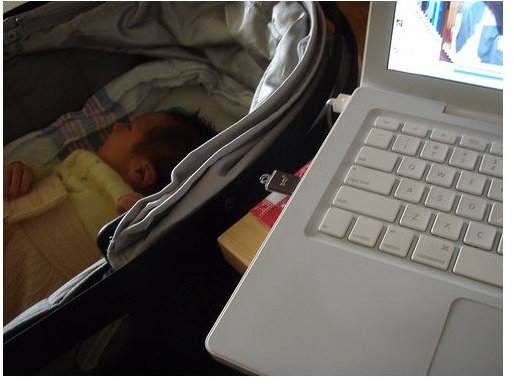Five Popular Categories of Jobs Not Suitable for Telecommuting
Telecommuting is the way of accomplishing job work tasks from off-site locations; usually the employee’s home through channels such as telephones and computers. Telecommuting careers are synonymous with the “work from home” concept and are suitable for jobs that are independent in nature, requiring minimal supervision, and minimal dependence on others to complete.
The nature of certain manufacturing jobs, retail, front-line jobs, maintenance jobs, security jobs, and health care jobs make such jobs not suitable for telecommuting.
Image Credit: Daquella manera: https://www.flickr.com/photos/daquellamanera/
1. Manufacturing Jobs
Prior to the Industrial Revolution of the 18th Century, manufacturing took place in individual hutments and camps; the earliest form of the work from home concept. The Industrial Revolution, however, brought in large machinery set up in factories resulting in economies of scale, cost efficiency, quality, and standardized mass production making the home-based job market obsolete.This continues today and modern telecommunication innovations have still not found an alternative to factory work. Some home based manufacturing opportunities do exis, but they remain limited mostly to arts and crafts, and sall scale localized production.
Full time mainstream and commercial manufacturing require the physical presence of workers, supervisors, and managers to operate the machines and handle the goods, and as such, most of the manufacturing jobs take place in factories, and are jobs not suitable for telecommuting.
2. Retail and Other Frontline Jobs
While the virtual marketplace and online sales are ever-growing in popularity, internet shops are far from replacing the brick and mortar stores where the customer physically walks in to make a purchase. Such brick and mortar shops require the physical presence of the salesperson, the cashier, the store manager, and all other front-line employees. Related to such retail jobs are other front-line jobs such as receptionists, counselors, and direct marketers.
The fact that all the above jobs require face-to-face contact with the customer or clients makes such jobs not suitable for telecommuting.
3. Maintenance Jobs
Construction and maintenance jobs such as installation of equipment, repair of machinery and office gadgets, and other facility management jobs require the physical presence of the worker at the location to complete the job.
Back-office processing is one category of jobs most suited for telecommuting, but even here, certain jobs such as server management require the physical presence of the worker at the office, and are hence not suited for telecommuting.
4. Security Jobs
Electronic surveillance is gaining fast in popularity, but one of the major roles of security personnel is to catch culprits who breach such systems, and for this reason, telecommuting is not an option for security jobs.
The physical presence of security personnel is often necessary not just to catch violators but also to enforce the security code for electronic controls that malfunction. Because not all people comply with the security procedures and understand the advancements in security technology, security electronic monitoring still requires personal and on-site attention.
5. Health Care Jobs
Healthcare is an industry where telecommuting in the form of medical transcription and other jobs has made significant advances. The advances in technology make it possible even doctors to telecommute, directing operations from the confines of their home through the internet. Paradoxically, healthcare is also an industry where many of the jobs are jobs not suitable for telecommuting. Even if the lead doctor telecommutes, an assistant doctor has to carry out the operation, nurses have to tend to the sick, and operators have to physically operate needed medical machines.
The success of telecommuting depends on determining whether the job is suited for telecommuting in the first place.
